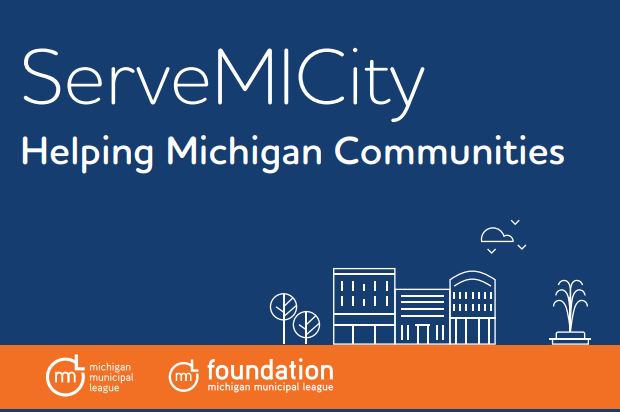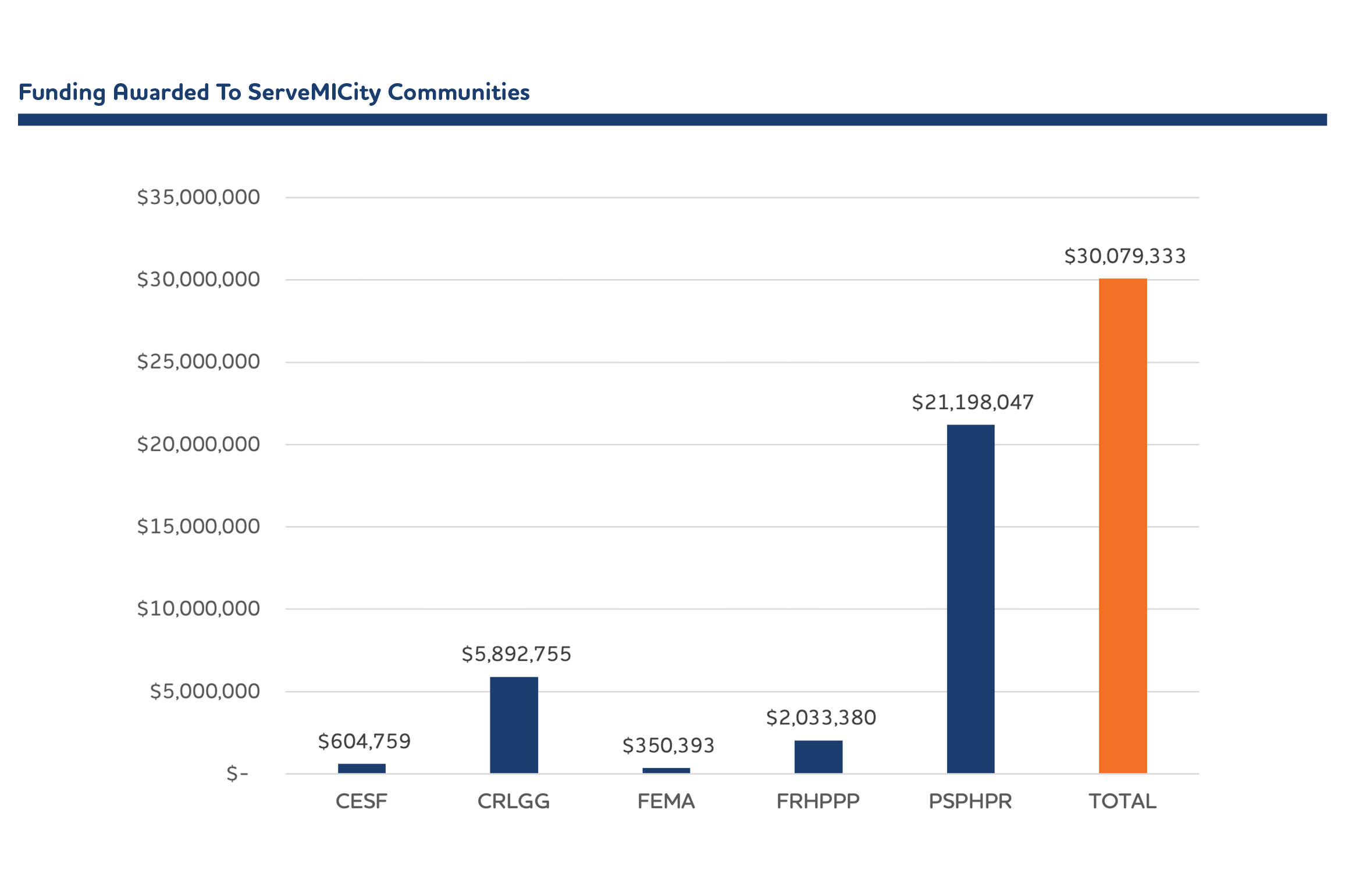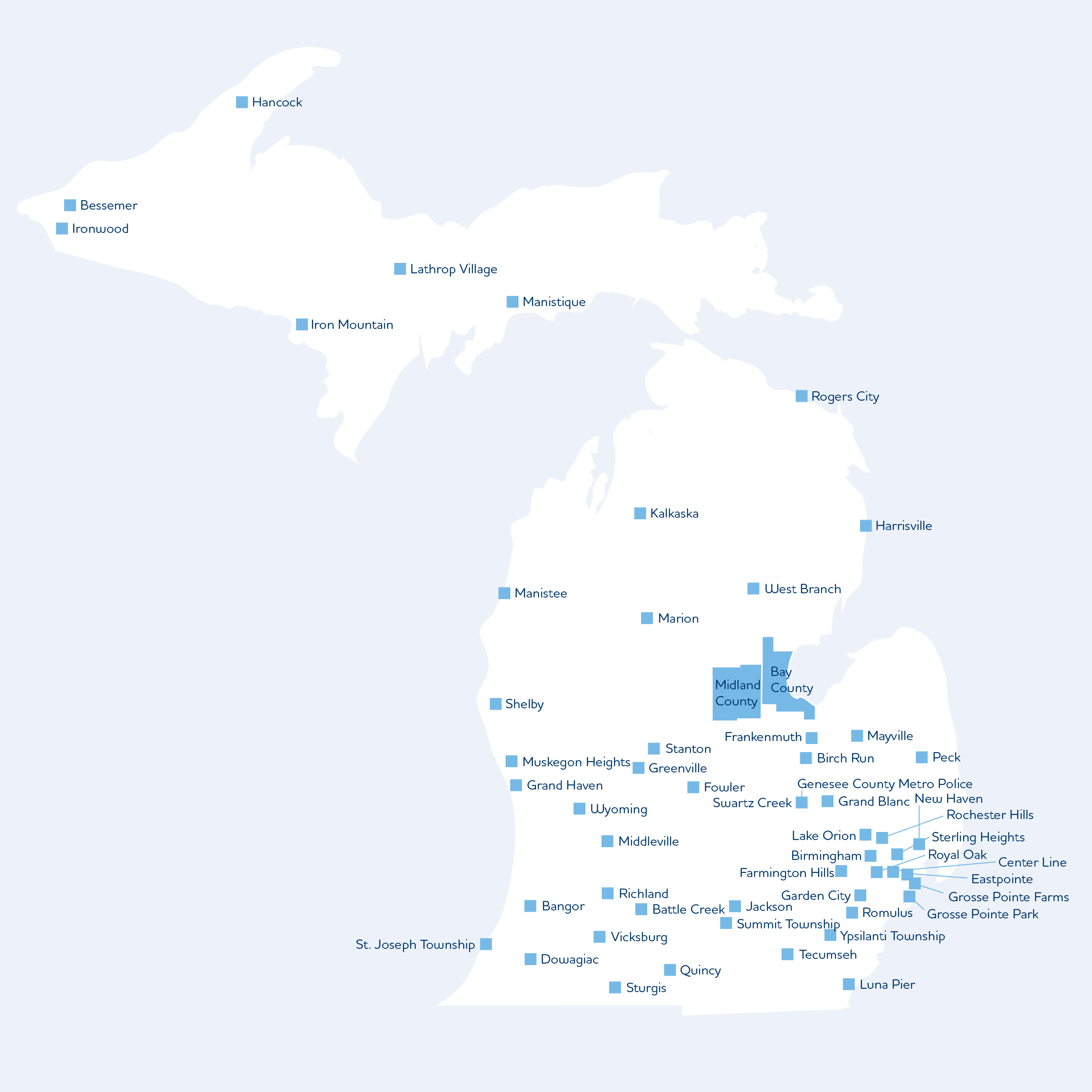
When COVID-19 hit our state, and various financial assistance became available, the Michigan Municipal League launched a new program called ServeMICity to help MML members navigate this new funding.
And now that the American Rescue Plan Act of 2021 is approved and additional support is heading your way, ServeMICity will continue to help your community. The League hopes your community views this one-time, substantial assistance as an opportunity to chart your future. The League, along with the Michigan Municipal League Foundation, are embracing the concept of Community Wealth Building, which in essence is about serving all your residents in ways that enhance the quality of life for everyone in your community.
The aid your municipality is going to receive from the American Rescue Plan is really investment capital to set your community up for the future, a future that should be focused on building community wealth.
A new report released today details the work by the League’s ServeMICity program. We hope as you look at this report, you’ll be able to determine how this program can best help you navigate the American Rescue Plan assistance coming your way.
It’s hard to believe that it was a year ago already, when the coronavirus (COVID-19) pandemic was beginning its rapid acceleration across the United States and Michigan. We all know too well how the pandemic altered lives by forcing school and business closures, locking down society in ways not seen since the 1918–19 influenza pandemic. Responding to the crisis placed a financial strain on many local governments due to increased costs and decreased revenues. Fortunately, the federal government released a series of wide-ranging stimulus packages, most notably the $3.3 trillion Coronavirus Aid, Relief, and Economic Security (CARES) Act. This act provided $150 billion to state and local governments for pandemic response, with Michigan receiving $3.87 billion.
As CARES Act funding rolled out, the League recognized the existing challenges for local governments that had to identify and apply for funds, particularly those with limited capacity or strained resources.
That’s why we developed ServeMICity—a proactive program providing direct technical assistance to communities in need of support to identify and apply for available stimulus funding.
As you’ll see in our new report, ServeMICity has helped 56 communities to date, securing nearly $30 million in additional funding for Michigan.

Under the new American Rescue Plan Act, $350 billion is coming to state and local governments—more than twice the amount of CARES Act funding. Michigan is projected to receive approximately $10.3 billion, $4.4 billion for local governments, $5.6 billion for the State of Michigan, and another $250 million for capital improvement projects. The entire American Rescue Plan represents $1.9 trillion of funding, including money for vaccines and COVID-19 testing, K–12 schools, higher education, transportation, childcare, as well as rental and mortgage assistance.
This amount of financial assistance that is coming may seem a bit overwhelming, but the good news is that ServeMICity is still available to communities that need support to navigate this new funding. This is an opportunity to leverage expertise and assistance and to fill in the gaps where staff capacity is limited or, for some smaller communities, simply nonexistent. ServeMICity can extend and expand municipality capacity to ensure available funding is not lost.

While much of the allocation process for American Rescue Plan funding appears formula driven in distributing dollars to local governments and states, it’s too early to predict what will be required to secure funding. Check out this recent blog by the League’s legislative team with additional details.
While the U.S. Secretary of Treasury is tasked with issuing regulations for distribution of these funds, the federal legislation outlines four broad categories of allowable expenditures for local governments:
- Responding to the COVID-19 public health emergency or its negative economic impacts, including assistance to households, small businesses, and nonprofits, or aid to impacted industries, such as tourism, travel, and hospitality.
- Providing premium pay to eligible essential workers or providing grants to eligible employers that have eligible workers who perform essential work.
- Providing government services up to the amount of lost revenue due to the COVID-19 public health emergency relative to income in the most recent full fiscal year prior to the pandemic.
- Making necessary investments in water, sewer, or broadband infrastructure and addressing the negative economic impacts of the pandemic.
As we learned with CARES Act funding, how these broad categories are translated into funding requirements can be complicated and remain to be seen. Communities may need assistance with activities like establishing eligibility, document preparation, and closeout reports.
In addition to the formula-based allocations, there is also another $3 billion targeted for the Economic Development Administration (EDA) for projects across the nation. EDA funds are open to local units of government for certain infrastructure- and economic development-related projects, although they are typically highly competitive and require detailed grant submissions. ServeMICity can provide guidance on pursuing such funding and reviewing grant applications.
Whether navigating direct allocations or pursuing competitive funding, the League is ready with its ServeMICity program to assist our members across the state. We want to ensure that every available dollar of stimulus funding is secured and used to help Michigan communities, particularly those experiencing staff and service reductions due to the pandemic. In addition, all of our members face unknown long-term challenges, such as uncertain commercial property values due to business closures. While we hope for a quick and full economic recovery, such challenges may further erode local revenues in the months to come, making these funds a critical resource.
If your community needs support with navigating the American Rescue Plan, please contact Shanna Draheim at sdraheim@mml.org or 517-410-1263. We are ready, willing, and able to help you get through this pandemic and come out on the other side stronger than before.